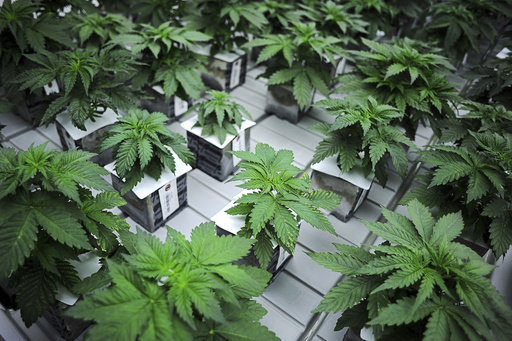
South Dakota is poised to make a significant decision on Tuesday regarding potential constitutional protections for abortion rights, which could lead to the overturning of the state’s current abortion ban.
The abortion rights initiative is part of a broader selection of measures on the general election ballot, which also includes proposals for recreational marijuana legalization, the elimination of state sales tax on food, and a change to the primary election system to facilitate a single, top-two candidate format.
One of the most pressing issues for voters is the proposed amendment concerning abortion. This measure seeks to revise the South Dakota Constitution to prohibit any restrictions on abortion during the first twelve weeks of pregnancy.
Following the twelfth week, regulations concerning abortion would need to be “reasonably related” to the health of the patient until the twenty-sixth week of pregnancy. Even after that point, abortions would be allowed to protect the health or life of the patient.
Currently, since 2022, South Dakota’s abortion law classifies the procedure as a felony, except in circumstances where the patient’s life is at risk.
Abortion opponents remain determined to challenge the initiative, even if it receives voter approval. The Life Defense Fund has initiated a lawsuit in state district court objecting to the manner in which signatures were gathered for this ballot proposal, asserting that such alleged misconduct warrants its removal from the ballot. A hearing to discuss this challenge is scheduled for December 2.
Advocates of the measure counter these claims, asserting that the lawsuit is merely an attempt to undermine the democratic process and the voice of the voters.
Supporters of legalizing recreational marijuana are back on the ballot after multiple attempts. This will mark the fifth occasion in eight years that South Dakota voters are asked to consider a pro-marijuana legalization initiative.
The latest proposal would permit adults aged 21 and older to legally possess up to two ounces of marijuana, excluding concentrated forms and products. Additionally, it would allow individuals to cultivate marijuana plants with certain restrictions.
Currently, a total of 24 states have already authorized recreational marijuana use.
While South Dakota residents approved medical marijuana use in 2020 following a previous rejection, the state Supreme Court later invalidated the 2020 recreational legalization amendment. Another attempt in 2022 also failed at the polls.
Another item on the ballot aims to relieve grocery buyers, with a proposal to eliminate the state sales tax on food.
Last year, South Dakota reduced its sales tax from 4.5% to 4.2%, and with this new measure, voters would decide whether to halt state taxes on all food items intended for human consumption, with exceptions for alcoholic beverages and prepared food items like meals from restaurants.
Estimates from the state legislature indicate that this change could result in an annual revenue loss of approximately $124 million, accounting for 5% of the total general tax revenue.
In addition, the proposed amendment concerning primary elections has garnered mixed reactions from the political landscape. The initiative seeks to abolish partisan primaries, creating a “jungle primary” system where all candidates appear on the same ballot for an office.
Advocates believe this could better reflect voter preferences and enable the approximately 155,000 voters without political affiliation to participate more fully in primary elections.
However, leaders from both major political parties have raised concerns, suggesting that less prominent parties might struggle to make it to the general election ballot.
With the Republican Party holding a dominant presence in the state legislature, many candidates in general elections could potentially be Republicans, complicating the landscape for moderate candidates who may be overshadowed by more conservative contenders favored by party authorities.
